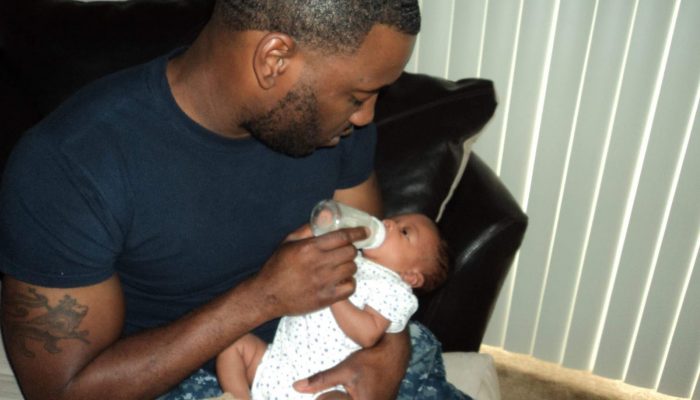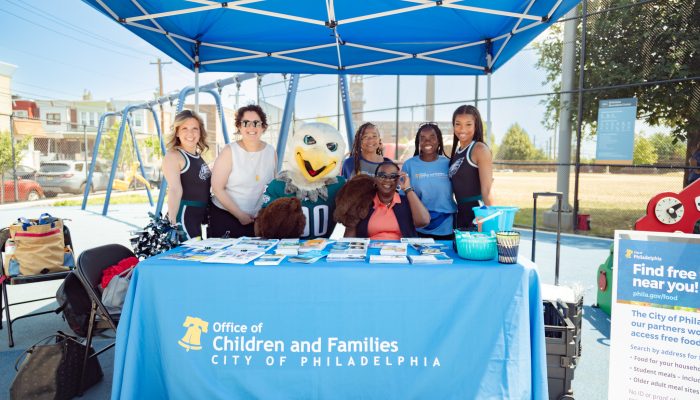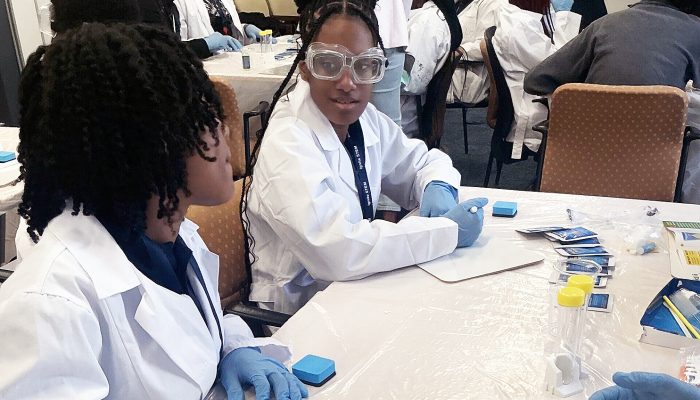June is National Reunification Month which celebrates the people and efforts around the country that help families stay together, and honors families who have successfully been reunified with their children after involvement with the child welfare system.
Read the story below and learn how Branden Kelly, a father of three in Philadelphia, reconnected with his children after a tumultuous period that led to his three young children being placed in the care of kin through the Philadelphia Department of Human Services (DHS).
The Philadelphia Department of Human Services puts families and their needs first.
To honor parents like Kelly, DHS is recognizing June as National Reunification Month. Throughout the nation, this month celebrates the people and efforts around the country that help families stay together and reunify after involvement with the child welfare system.
“Our goal is to reunify as quickly as possible. Returning children home includes strategies such as connecting families to services in the community, regular and frequent visits from a caseworker, or parent education,” said Commissioner Kimberly Ali.
Like many parents working with the child welfare system to reunify with their children, Kelly worked with DHS-funded programs that supported him in fixing the problems that led to his children being taken out of the home.
Throughout the reunification process, Kelly, a single dad, stayed focused on his goal: to make sure his children had a safe environment to grow up in and a place to thrive academically. He enrolled in DHS’s Rapid Rehousing program, which provides housing support to families projected to be reunified with their children in six months or less.
Kelly’s face lights up when talking about his Rapid Rehousing case manager. “She did so much more than housing. She was there if I needed to talk to somebody, get advice, she helped me in every possible way, and I thank her from the bottom of my heart.”
As a Navy veteran, Kelly is familiar with sticking to a strict regimen and this helped him take the necessary steps to get his family back together once again.
“I get up each morning and I put my best foot forward,” said Kelly. “I take it minute-by-minute.”
In addition to housing support, parents can access services from the Achieving Reunification Center (ARC), a one-stop support center that provides parents and caregivers with children in out-of-home placement a safety net by understanding their needs, answer questions about the reunification process, and listen to their reunification goals. Parents and caregivers have an opportunity to build economic mobility, social connectedness, health, well-being, and educational advancement.
After months of working with his case manager, Kelly was able to find a location that fit his family’s needs and signed a lease. With his new keys in hand, Kelly unlocked a new future for his family.
“DHS is not about foster care and then adoption. It’s about safety and then reunification,” said Commissioner Ali.
Reunification Resources
- Achieving Reunification Center | Call 267-514-3500
A one-stop support center that provides services to parents and caregivers with children in out-of-home placement.
Parenting Resources
- Parenting Education and Support Groups | Call 215-PARENTS (727-3687)
Help parents improve parenting skills and relationships with their children. Our education and support groups provide a safe, confidential, and supportive environment for parents to learn, give, and receive support from other parents, and engage in self-reflection. DHS supports family classes and groups for all families, whether DHS- involved or not. Our wide range of parenting programs includes classes at more than 35 community organizations across Philadelphia.
- Parent Cafés | Call 215-PARENTS (727-3687) or Find an upcoming Parent Café Hosted in ten different neighborhoods throughout the city, these parent-led groups are judgement-free spaces, where parents can get together and talk. A meal and childcare is always provided at Parent Cafés (when they meet in-person). Watch our video about Parent Cafés to learn more.
Housing Resources
- DHS Housing Programs | Call 267-514-3500 or Talk to your DHS social worker or CUA case manager
Housing and support services that work with the Philadelphia Housing Authority, the Office of Homeless Services, and various social service agencies to help DHS-involved families stay in their homes.
If your family is struggling, the Department of Human Services (DHS) can help connect you with programs, services, and resources you may need. Learn more.




